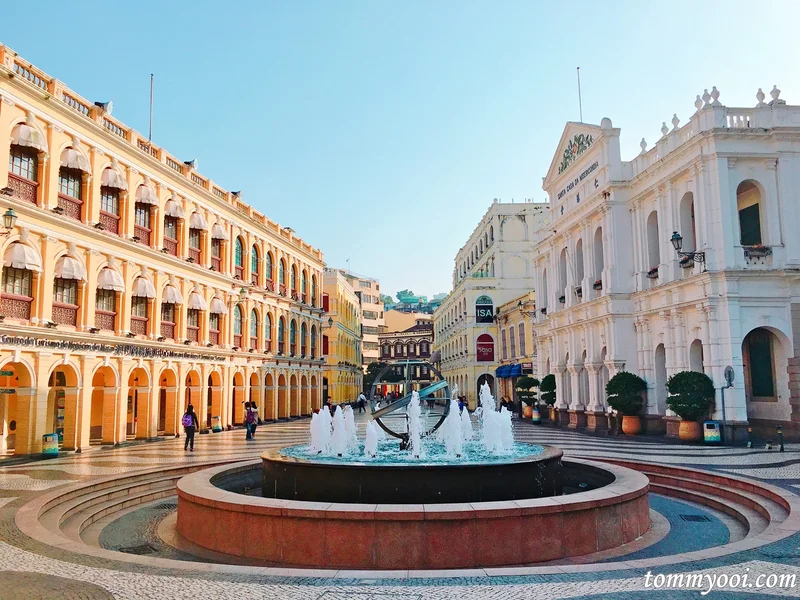Macau: What We Know and the Casino Hub's Bets
Title: Macau's Gamble: Can Healthcare Really Replace Casino Cash?
Macau, the former Portuguese colony that became the world's casino capital, is making a bet of its own: that it can diversify its economy away from gambling and towards healthcare tourism. The move comes as Beijing pushes for "economic diversification" in the region, a shift accelerated by the pandemic-induced casino closures that decimated revenues. A new "resort hospital," iRad Hospital, offering luxury medical services, has just opened in Studio City, a Hollywood-themed casino resort. The question is: can healthcare really fill the void left by gambling?
The Hard Numbers
Let's look at the scale of the challenge. Macau draws almost 40 million visitors a year (iRad Hospital's figure), primarily from mainland China and Hong Kong. The goal is for these visitors to stay longer and spend more, presumably on medical procedures and related tourism. But gaming-related taxes still account for the majority of Macau's government revenue. We're talking billions of dollars annually.
So, what kind of growth would healthcare tourism need to see to even begin to offset that? The global medical tourism industry is worth tens of billions of dollars, projected to grow significantly. But "significant" is relative. Can Macau realistically capture a large enough slice of that pie to replace the massive revenue stream from casinos? I'm skeptical.
Consider the competition. South Korea is a major hub for cosmetic surgeries. Singapore offers advanced treatments. India provides cheaper alternatives. Macau is entering a crowded market, and it's unclear what its unique selling proposition will be beyond its existing infrastructure of luxury hotels and entertainment.
Beijing's Push and Macau's Response
The pressure to diversify comes directly from Beijing. During a visit in late 2024, Xi Jinping emphasized the need for "economic diversification" and "new industries with international competitiveness." This directive follows a crackdown on displays of wealth and a push for "common prosperity" on the mainland, making Macau's image as a gambling playground increasingly problematic.
Unlike Hong Kong, Macau hasn't had a strong pro-democracy movement. However, Beijing has been tightening its grip, with recent legislative polls seeing low turnout after candidates were disqualified. The jailing of a major gambling tycoon for organized crime further underscores this shift. The message is clear: Macau needs to clean up its act and find a new economic engine.
I've read hundreds of these economic reports, and the speed of this shift is unusual. It's not organic growth; it's a forced march.

The expansion of the talent visa policy allowing mainland talent to travel to and from Hong Kong and Macau is another piece of this puzzle. The policy, expanded to include the entire Yangtze River Delta and Beijing-Tianjin-Hebei regions, allows qualified individuals in various fields to apply for multiple-entry visas. This aims to bring in the expertise needed to develop these new industries, including healthcare. China expands areas for pilot program allowing mainland talent to travel to and from Hong Kong and Macau
But will it be enough? Talent visas are one thing; building a world-class healthcare system from scratch is another. It requires not just skilled professionals but also infrastructure, regulatory frameworks, and, crucially, a reputation for quality and reliability.
And this is the part of the analysis I find genuinely puzzling. Macau's pivot isn't just about attracting medical tourists; it's about fundamentally transforming its economic identity. It's like trying to turn a cruise ship into a submarine – a massive undertaking with uncertain results.
Smoke and Mirrors?
The opening of iRad Hospital is a start, but it's just one facility. The key will be attracting a consistent stream of high-spending medical tourists. And that requires more than just luxury services. It requires trust, expertise, and a track record of success. Gambling hub Macau bets on healthcare tourism
The new policy permitting travelers from 55 designated countries to enter via specified mainland China ports without a visa for up to 10 days may help, but that's primarily aimed at boosting tourism in general, not specifically healthcare. The devil, as always, is in the details. What percentage of those travelers will actually seek medical treatment in Macau? And what will be the average spend per visitor? Without those numbers, it's impossible to gauge the true impact.
A High-Stakes Gamble
Macau's bet on healthcare tourism is a high-stakes gamble. The region faces significant challenges, including intense competition, a need for substantial investment, and the pressure to rapidly diversify its economy. While the potential rewards are significant (a stable, diversified economy less reliant on gambling revenue), the odds are far from certain.
Can Macau pull it off?
Only time will tell. But for now, the numbers suggest that Macau has a long way to go before healthcare can truly replace casino cash.
A Reality Check
The house still wins.
